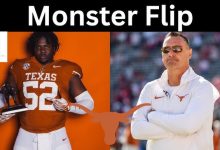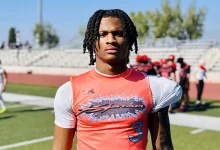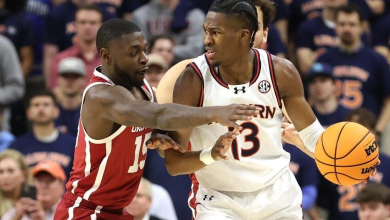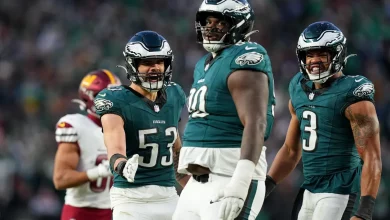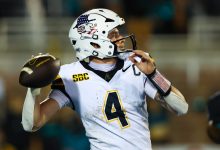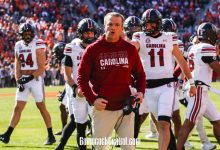“If I Had My Way, I’d Knock Them All Out”: The Relentless Fear and Legacy of Chicago Bears Legend Dick Butkus
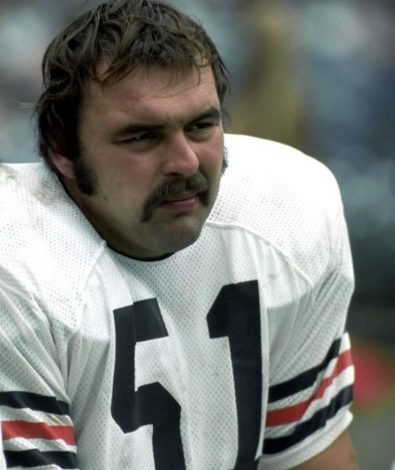
Few names in NFL history evoke the raw, unfiltered aggression and intimidating presence that Dick Butkus carried every time he stepped onto the field. His chilling sentiment, “If I had my way, I’d knock them all out,” isn’t just a boastful declaration; it perfectly encapsulates the ethos of a player who became the very embodiment of fear and dominance on defense. For eight seasons, from 1965 to 1973, Butkus terrorized offenses as the heart and soul of the Chicago Bears, redefining what it meant to be a middle linebacker in the National Football League.
The Making of a Fearsome Force
Richard “Dick” Butkus was born in Chicago, Illinois, a city steeped in football tradition. From an early age, it was clear he possessed not just athletic talent but a fierce competitive spirit. At the University of Illinois, Butkus emerged as a college star, showcasing a rare blend of speed, power, and instinct that set him apart. His reputation as a fearsome tackler and relentless competitor caught the attention of NFL scouts, and in 1965, the Chicago Bears made him the third overall pick in the draft.
The stage was set for a career that would forever change the linebacker position. Butkus’s arrival at Halas Hall marked the beginning of an era where opponents didn’t just prepare for the Bears’ offense—they feared the defensive nightmare lurking in the middle of the field.
A Relentless Aggressor on the Field
Butkus’s style of play was unmistakable. He played with an intensity that blurred the lines between football player and warrior. Every snap, every play, was an opportunity to assert dominance, punish the opposition, and inspire his teammates. His bone-crushing tackles became legendary, striking fear into ball carriers who knew the danger of facing him head-on.
Butkus didn’t just tackle hard; he tackled smart. He had an uncanny ability to read plays before they unfolded, positioning himself perfectly to disrupt offenses. His instincts allowed him to anticipate passes, leading to numerous interceptions and forced fumbles. Opposing quarterbacks often faced immediate pressure from Butkus’s blitzes, knowing a free-running linebacker was barreling toward them.
His impact was so significant that coaches across the league devised game plans specifically to neutralize his presence. Teams would assign multiple blockers or design quick-release passing schemes just to minimize Butkus’s influence on the game.
Defining the Middle Linebacker Position
Before Dick Butkus, the middle linebacker was primarily seen as a tackler and a run-stopper. Butkus revolutionized the role by combining physicality with mental acuity, athleticism, and relentless aggression. He demanded a complete skill set: the ability to read offenses, cover receivers, blitz the quarterback, and dominate the run game.
Butkus’s approach turned the middle linebacker into the defensive quarterback, the player who orchestrates the defense, calls audibles, and inspires teammates through his ferocity and leadership. His style set the standard for generations of linebackers who aspired to play with the same passion and tenacity.
A Career of Highs and Challenges
Throughout his eight-year NFL career, Butkus amassed accolades that testify to his dominance. He was named NFL Defensive Player of the Year twice, in 1969 and 1970, and was selected to the Pro Bowl every season he played—a remarkable feat that underscores his consistency and impact.
Butkus was also a six-time First-Team All-Pro, a testament to how he was regarded by coaches, players, and media alike. Yet, his career was marked not just by success but also by adversity. Chronic knee injuries eventually forced him to retire prematurely, cutting short what might have been an even more legendary tenure.
Despite this, Butkus’s influence extended beyond statistics and awards. He became the face of the Bears’ defense, a cultural icon who embodied toughness and intimidation. His presence altered the way offenses operated and elevated the Bears’ identity as a defensive powerhouse.
Off the Field: The Sideline Presence and Leadership
Butkus’s intensity wasn’t limited to the field. Even on the sidelines during the 1973 season and beyond, his aura of aggression and focus was palpable. Teammates and coaches often spoke about his leadership—how his competitive fire motivated the entire defense to elevate their game.
His presence created a culture of accountability and toughness within the Bears’ locker room. Young players looked up to him not only as a physical force but also as a standard-bearer for professionalism and dedication.
The Legacy of Dick Butkus
Today, Dick Butkus remains one of the most iconic figures in NFL history. His name is synonymous with linebacker excellence and uncompromising physicality. He left behind a legacy that transcended his playing years, influencing how the game is played and how defenders approach their craft.
His influence can be seen in the way modern linebackers train and prepare. Many NFL greats cite Butkus as an inspiration—someone who set the bar impossibly high for toughness and performance.
Beyond the field, Butkus has used his platform to impact the community, advocate for player safety, and promote the sport’s values. His induction into both the Pro Football Hall of Fame and the College Football Hall of Fame cements his status as a football legend.
Dick Butkus’s chilling declaration, “If I had my way, I’d knock them all out,” perfectly captures the relentless spirit that defined his career. More than just a football player, he was a primal force whose aggression and skill instilled genuine fear in opponents.
From his first snap in 1965 to his final game in 1973, Butkus transformed the middle linebacker position and became the heartbeat of the Chicago Bears defense. His legacy endures as a benchmark for what it means to play with passion, toughness, and an unyielding will to dominate.
In the annals of football history, Dick Butkus is not just remembered—he is revered, feared, and forever celebrated as one of the greatest defensive players to ever grace the gridiron.

